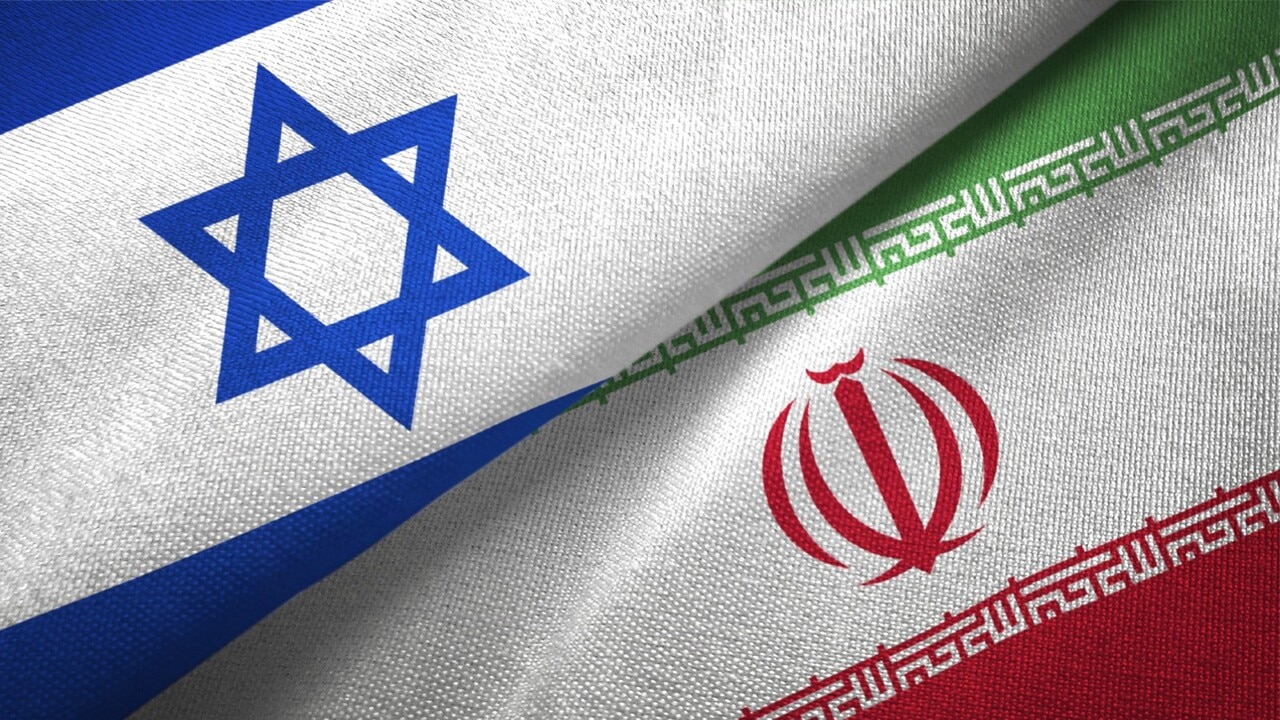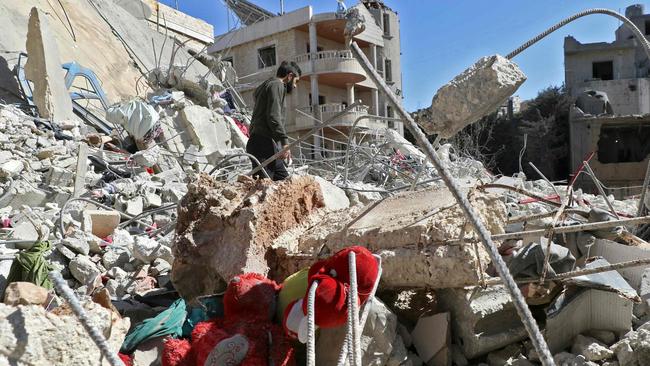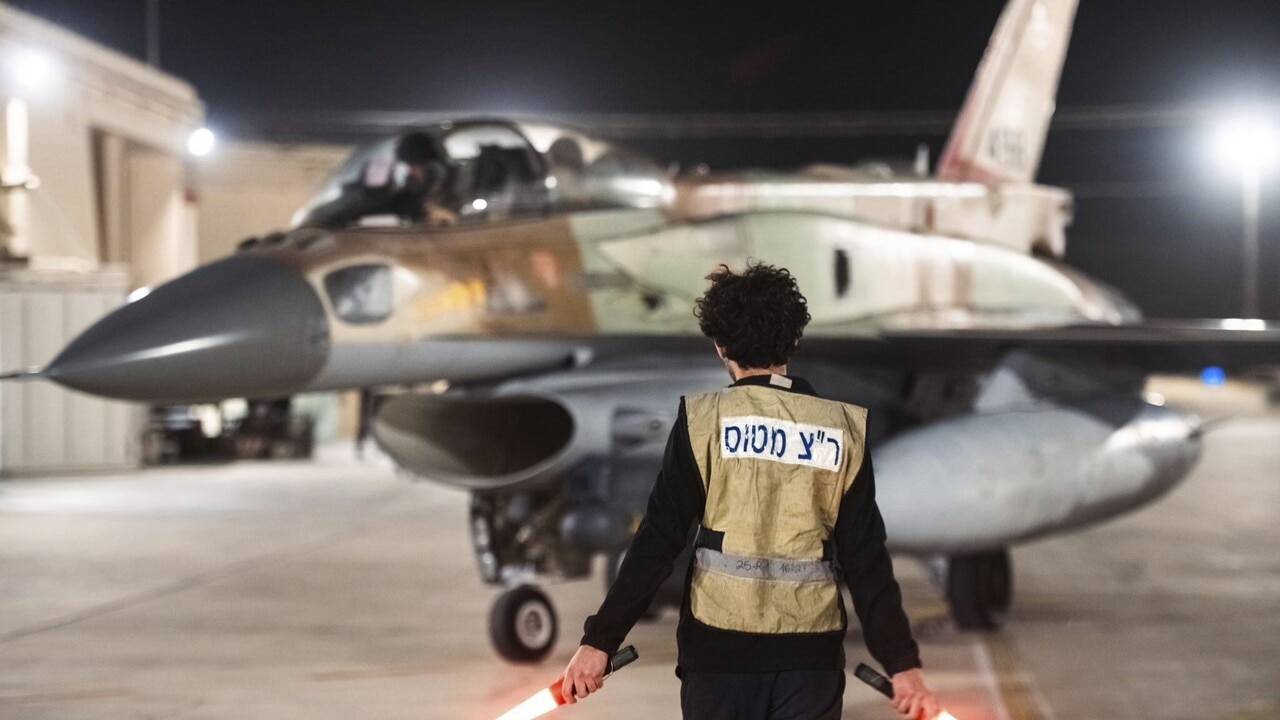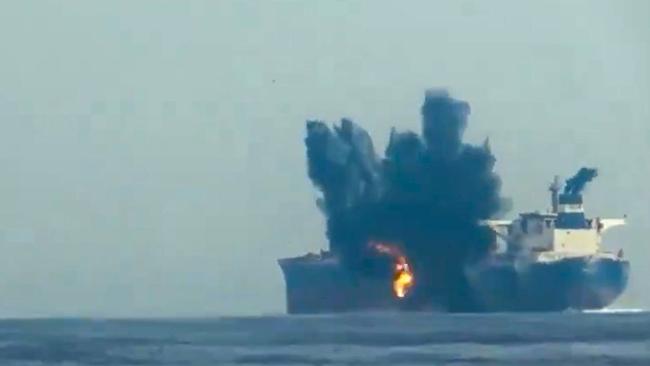
The question now is whether Iran will find it necessary to respond further, or whether the weekend raids form the conclusion to the round of hostilities that began with the killings of Iran-aligned Islamist leaders Ismail Haniyeh of Hamas in Tehran and Hezbollah leader Hassan Nasrallah in Beirut.
Even if Tehran now chooses to draw a line under this round, it is a near certainty that another round will come. Israel and Iran are already at war. The complexity comes from the form the war takes, and from Iran’s clear and continued preference for pursuing it as far as is possible through the mobilisation of non-Iranian forces.
The currently available evidence suggests the Israeli operation, which came as a response to Tehran's launching of more than 180 ballistic missiles at Israel on October 1, was at the lower end of the spectrum of Israel’s capabilities. At the same time, it appears to have been considerably more extensive than Israel’s April 19 response to Iranian missile and drone attacks on April 14.

There had been speculation that Jerusalem might choose to attack Iranian oil facilities. Iran is the fourth-largest producer of crude oil in OPEC. Its already mismanaged and faltering economy depends heavily on the maintenance of oil exports. There are a number of obvious, visible and vulnerable targets in this sector: the Bandar Abbas terminal and Kharg Island were the subject of some media speculation in recent weeks. Some bolder spirits even predicted or recommended that Israel act against Iranian nuclear facilities.
None of these options was ever likely. The US administration is clearly opposed to action against the nuclear facilities. It may well be beyond Israel’s abilities to strike a crippling blow against them, and in any case Jerusalem would be dependent on American support in the all-out war that would probably follow any such action.
It would be exaggerated to suggest Washington has a veto over Israeli action in this area. Israel’s recent actions in Lebanon show the extent to which Jerusalem does not take dictation on matters that it regards as vital to its security, even from its largest and most vital ally.
Still, strikes on Iranian nuclear facilities remain several sizes larger than anything related to Lebanon and Gaza. They remain some distance away on the escalation ladder. Strikes on oil facilities, similarly, were likely to be avoided because of the impact on the economies of Israel’s friends, as well as its enemies. Again, US counsel probably played a significant role in determining the decision in this area.

This left targets from within the Iranian regime’s military and governance systems. The sites struck on Friday night appear to have fallen within the former area. Air defence capacities were neutralised. Israeli aircraft then struck at missile and drone manufacturing and launch sites in Tehran, Khuzestan and Ilam provinces. Two Iranian soldiers are reported to have been killed.
It is notable that Israel avoided targeting of prominent regime figures or sites associated with governance. This adds to the impression that Israel was seeking with Friday’s attack to complete the current cycle of attack and counter attack, by striking a blow calibrated to be sufficient to cause significant damage to Iranian capacities, while avoiding damage of a magnitude that would make further escalation an inevitability.
So what will happen next? Will Iran respond further, or is this indeed likely to constitute the final round in the latest exchange of fire between Tehran and Jerusalem?
A further Iranian response is possible, of course, but it currently looks unlikely. Pro-regime outlets appear currently to be downplaying the impact of the strikes, and seeking to dismiss evidence of the key failure of Iranian air defences (no Israeli aircraft were lost or damaged in the course of the operation.)
An Iranian source told this author that residents close to one of the missile sites struck observed that ambulances and fire trucks unusually avoided sounding their sirens in the early morning hours. The downplaying is notable. Israel’s operation may have been calibrated. The world may have already accustomed itself to periodic Israeli and Iranian strikes and counter strikes. Still, this was the largest-scale attack on targets in Iran since the Iran-Iraq War 40 years ago. Tehran, nevertheless, appears keen to end the escalatory cycle.

This is not so much because Iran is deterred. Certainly, it appears keen to minimise the impact of Friday’s strikes. But mainly, Iran wants to get back to conducting its war against Israel and the West along the lines within which it feels comfortable. These, as can be seen in the Houthis’ campaign on the Red Sea/Gulf of Aden route, Hezbollah and Hamas’s attacks on Israel, and the Iraqi Shia militias’ campaign against both Israel and US forces in Iraq and Syria, consist of the utilisation of non-Iranian forces to achieve Iranian ends. Iran is indifferent to losses among these forces, which it sees as dispensable instruments.
So is the latest round between Israel and Iran likely to be the last direct encounter between the sides? Almost certainly not. Israel appears entirely undeterred by Iranian reactions, and is thus likely to continue to target senior figures in Hamas, Hezbollah and, where necessary, also the IRGC, as and when it sees fit and the opportunity presents itself.
The wars in Gaza and Lebanon, which provide opportunity for this, do not appear close to conclusion. At the same time, the scale and nature of Israel’s strikes on Iran are unlikely to be sufficient to deter Iran from responding as and when such events occur. Further rounds of escalation are thus likely.
Jonathan Spyer is an analyst and journalist specialising in Middle East strategic affairs.




Israel’s overnight strike on Friday on targets in Iran appears to fit with the pattern of controlled escalation that has been under way over the past six months, rather than representing a decisive break with this pattern.